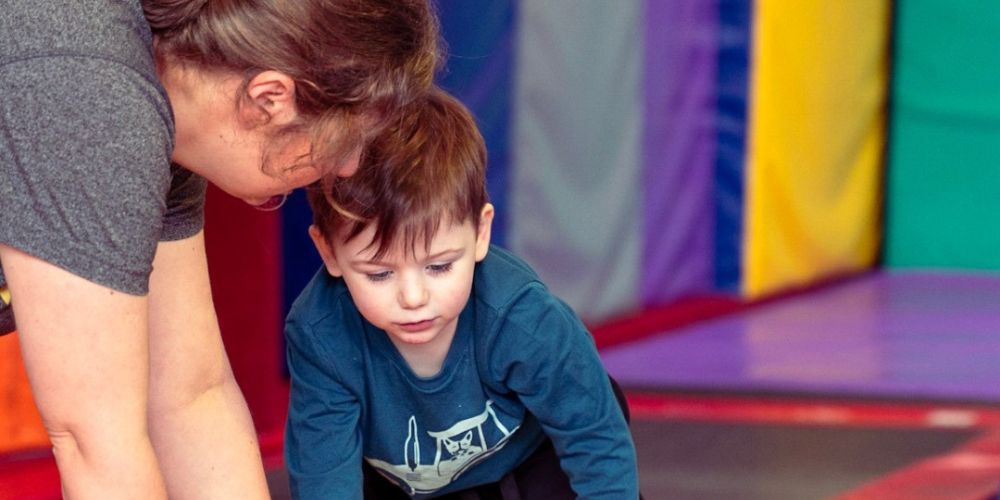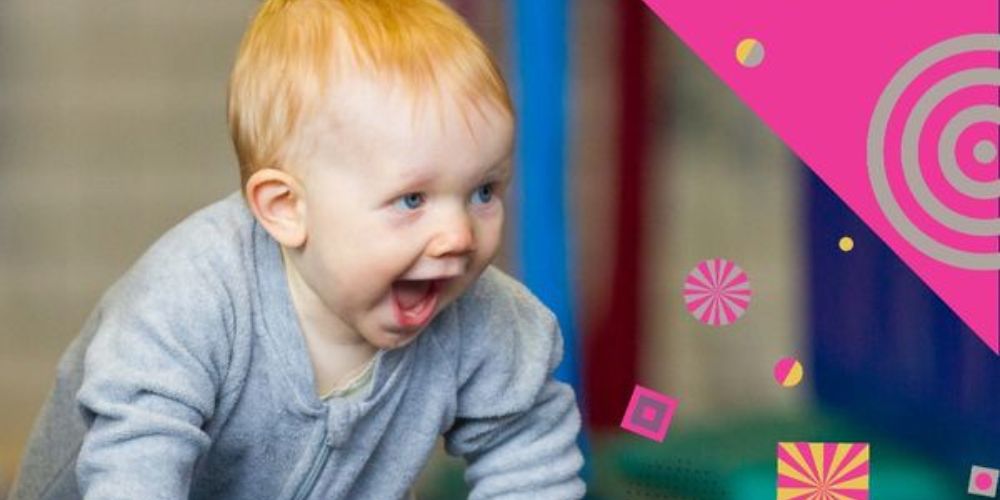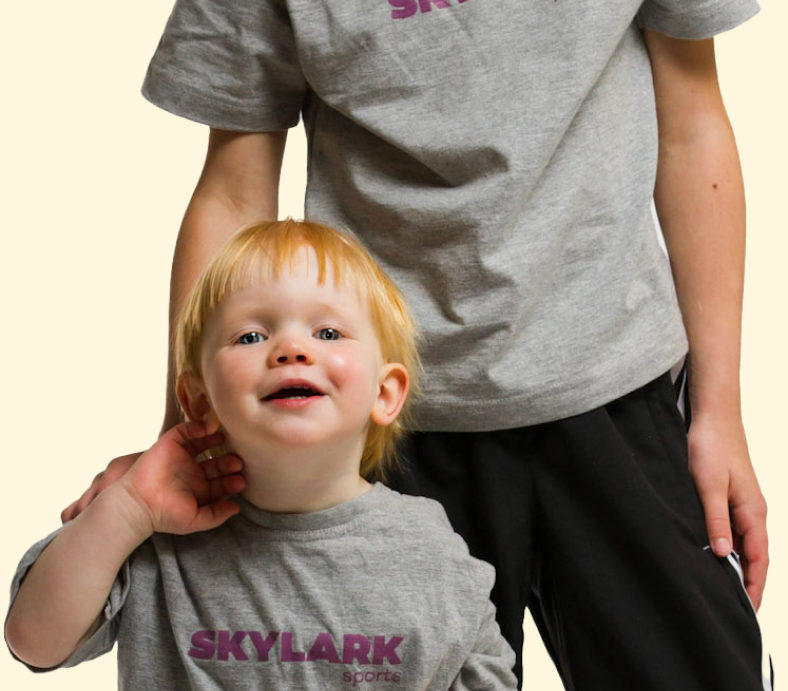As a parent, you can't help but think, "When's the right time to introduce my baby to the exciting world of gymnastics?" Parenthood is a journey packed with innumerable questions and choices, each contributing to your child's growth and development. Regarding early physical exercise and the enthralling world of gymnastics, you are beginning a journey that will pleasantly mold your baby's future.
Gymnastics is more than simply flipping and jumping; it's about creating a love of movement, instilling a feeling of balance, and promoting cognitive and social growth from the beginning. So, whether you want to see your child as a future balancing beam superstar or offer them a happy outlet for their limitless energy, we're here to reveal the secrets behind when, why, and how to introduce your child to the enthralling world of gymnastics.
So, let us jump in, explore, and uncover the wonders that await you and your small tumbler!

Importance of Early Physical Activities for Babies
I know what you're thinking: "Exercise for babies? Really?" But believe me when I say there's some major power behind those little movements. Early physical exercise is more than simply keeping your baby entertained; it is also about preparing them for a lifetime of health and happiness. Those cute wiggles and giggles? They're laying the groundwork for strong muscles, flexible joints, and the ability to stay active.
Development of Motor Skills:
Early physical exercises are similar to going to the gym for your baby's developing motor abilities. As they squirm, roll, and reach for items, their muscles, bones, and nervous systems engage, laying the groundwork for future physical achievements.
Cognitive Development:
Physical activity is more than simply exercising muscles; it is also a brain-building extravaganza. When your baby reaches out to hold a toy or pursues a moving item, they connect what they perceive with what they do. This technique, known as hand-eye coordination, prepares the path for improved cognitive abilities later in life.
Stimulation of the Senses:
Consider the world through your infant's eyes - a kaleidoscope of fresh experiences! Physical activities stimulate their senses, ranging from the tactile feeling of touching various textures to the visual delight of colored items. This sensory inquiry is not just exciting; it is also building the framework for future learning and comprehension.
Emotional Well-being:
We all know how a good workout can raise our emotions; newborns are no exception. Physical activities cause the release of endorphins, which are natural mood enhancers, resulting in a happier and more happy infant. Whether it's the thrill of bouncing or the delight of tummy time, these activities help your baby's mental well-being.
Strengthening Bones and Muscles:
Building a house requires a firm foundation, and your baby's body needs the same. Early physical exercises help to build strong muscles and bones. Tummy time and moderate stretches help your baby develop the strength required for future milestones such as crawling, standing, and walking.
The Ideal Age to Start Gymnastics for Babies
So, when is the ideal age to introduce your baby to the magic of gymnastics?
Timing is important when introducing your lovely child to the thrilling gymnastics world. Consider your baby's growth stages as a personalized gymnastics timer. Those charming efforts at lifting their heads during tummy time and rolling over around 4 to 6 months are glimpses of their motor abilities in action - a preview of the flips and tumbles to come. As they get closer to 8 to 12 months old, their cognitive abilities peek through as they reach for and examine things, building the mental framework for their gymnastic routine. By 12 to 18 months, they're enjoying social interactions with laughing and babbling, laying the groundwork for crowd-pleasing performances.
Signs of Readiness
Strong Muscles: Physical Hints
Consider your baby to be a tiny superhero getting ready for some gymnastic action. They offer subtle signals that suggest they're getting ready to take action in infant gymnastics.
- Holding Their Head Up: Do you ever place your baby on their belly and they elevate their head? That is significant! It indicates that their neck and belly muscles are becoming stronger. Even though they're enjoying tummy time fun, they're rehearsing gymnastic maneuvers.
- Sitting Up Strong: Have you noticed that your kid is starting to sit up with assistance? This is an indication that they are regaining their sense of balance. It's as though they're practicing gymnastics stunts like the ones you've seen on TV!
- Rolling Over: Finally, there's the rolling over. It's quite exciting when your baby starts rolling from their belly to their back or vice versa. It suggests they're learning to manage their bodies. They are learning balance, which is crucial for gymnastics techniques.
Exploring and Having Fun: Are They Ready?
Gymnastics is more than simply moving; it's also about having fun. Here are some indicators that your baby is getting ready to have some gymnastic fun.
- Curious and Interested: Have you ever noticed your little one reaching out to touch toys or attempting to grab things? That's because they're inquisitive. It's as if they're saying, "Hey, what's this?" Curiosity is the ignition key to getting passionate about gymnastics.
- Copying Others: Have you seen your child glancing at other babies and maybe imitating their actions? This is how they learn from others. It's similar to practicing as a team, which gymnasts also do!
- Enjoying Moving: Have you ever seen your little one grinning and smiling when you bounce them up and down? That indicates they're having a good time moving about. Gymnastics is all about having fun while exercising your body. Thus, happiness is a significant component of it.

Choosing the Right Gymnastics Program
Choosing the best gymnastics program for your child is like finding the missing puzzle in their early experiences. Let's look at how to choose a program that fits your baby's developmental stage and parenting choices.
Exploring Local Gymnastics Centers: Where to Begin
Consider this a treasure hunt: you're looking for a gym that's a good fit for your baby's gymnastics adventure.
- Reputation and Reviews: Start by asking about reputation and reviews. Fellow parents and internet reviews can provide vital information about the reputation of various gymnastics centers. Positive feedback from other families may be an excellent indicator of a program's quality.
- Safety precautions: Safety is of the utmost importance. Look for a program that focuses on your baby's health. Examine whether the gym follows safety rules, has a clean atmosphere, and has appropriate equipment for young gymnasts.
- Instructor Qualifications: The people guiding your baby's gymnastics experience are important. Look for instructors who have experience dealing with infants and toddlers. Their knowledge and attitude can significantly influence your baby's comfort and delight.
Evaluating Class Structures: Finding the Right Fit
Consider this phase similar to trying on several costumes to discover which best suits your kid.
- Parent-and-Baby Classes: These are ideal for the first few months. You and your baby may discover gymnastics together, strengthening your relationship while teaching them new exercises in a comfortable setting.
- Open Gym Sessions: Imagine an indoor playground where your child can explore various gymnastics equipment quickly. These lessons are ideal for introducing your infant to gymnastics in a non-structured atmosphere.
- Structured Gymnastics Classes: Structured classes become increasingly important as your infant develops and gets confidence. Look for age-appropriate classes where kids may acquire new skills in a safe environment.
Getting Your Child Ready for Gymnastics
Enrolling your child in a gymnastics class is similar to packing for an exciting trip.
- Establishing Routines: Familiar routines might help your infant feel safe. Arrange the gymnastics lesson around their nap and feeding schedule to ensure they're well-rested and comfortable.
- Introducing Basic Movements at Home: Introduce basic motions at home. Encourage your baby to reach, roll, and play gently, laying the groundwork for the gymnastics activities they will face.
- Familiarizing Your Baby with the Gym Environment: Take your child to the gym briefly before the first lesson. Allow them to explore the brightly colored carpets, bouncing surfaces, and interesting equipment. This familiarity might assist in easing any initial fears.
Frequently Asked Questions
What if my child appears uncomfortable during their first gymnastics class?
It is natural for newborns to be nervous in unfamiliar situations. Allow them some time to acclimate and observe. Holding them and consoling them might help them gain confidence. They'll get more at ease and excited with each class.
What if my child appears to be interested in something other than gymnastics activities?
Babies have distinct tastes. Don't be concerned if your infant does not instantly take to gymnastics activities. Maintain a lively and enjoyable mood. Patience and mild encouragement can sometimes gradually ignite their attention.
Will participating in baby gymnastics impact my baby's future interest in sports?
Baby gymnastics lays the foundation for a positive relationship with physical activity. While it's not guaranteed that your baby will become a gymnast or athlete, early exposure to movement and play can foster a lifelong appreciation for staying active.
What if my baby has special needs? Can they still participate in gymnastics?
Absolutely! Many gymnastics programs are inclusive and can be adapted to accommodate babies with special needs. It's a good idea to communicate with the program coordinators beforehand so they can tailor the activities to your baby's needs and comfort.
Conclusion
As parents, we shape our children's early experiences, and baby gymnastics provides a blank canvas with limitless possibilities. It's a blank canvas that stimulates physical and cognitive development and produces memories that endure a lifetime. Each step of their trip, from the first victorious raise of their head to the laughs and wiggles of exploration, is a brushstroke in the masterpiece of their voyage.
So, whether your baby is already a pint-sized gymnast in the making or you're considering enrolling them in their first class, remember that you're opening the door to a world where they learn to stretch their bodies, expand their minds, and embrace the magic of movement.
And, speaking of entering this lovely world, our gymnastics center eagerly welcomes your little star. We encourage you to join our gymnastics family with skilled teachers, a safe and loving atmosphere, and a commitment to creating a lifetime love of physical exercise. Let us celebrate in every flip, tumble, and joyous discovery. Join us at Skylark Sports and see your child's gymnastics career blossom most magically!

